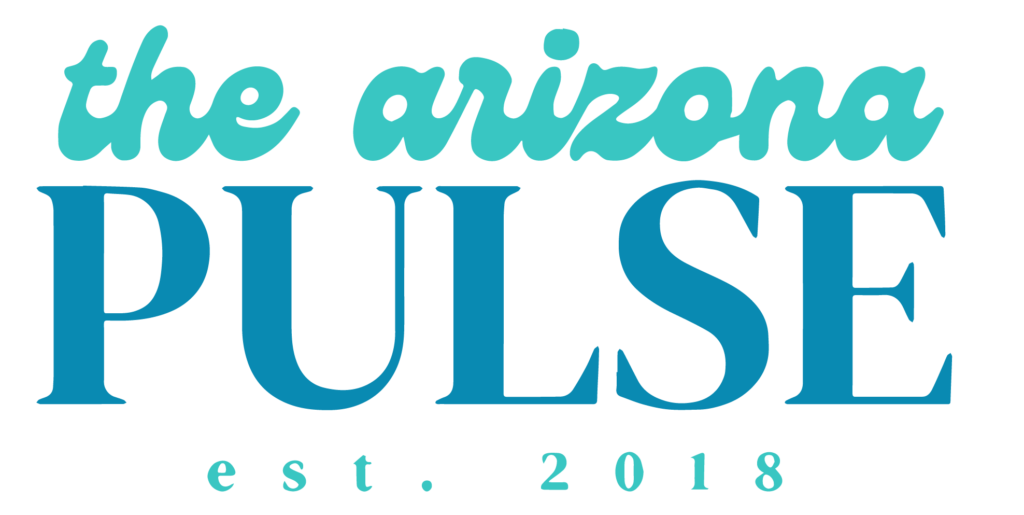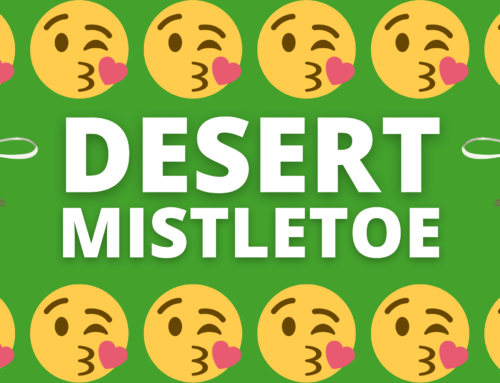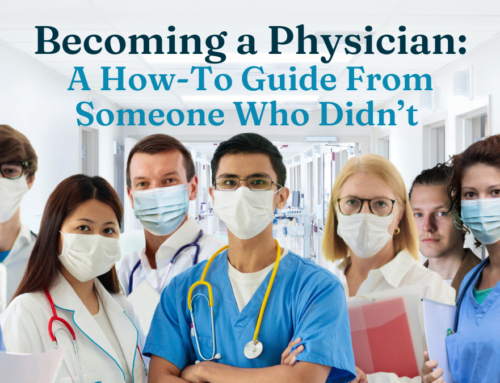Written by: Pareena Kaur, Briana Corkill, Rebia Khan, Abigail Solorio, Annapurna Chitnavis, Carleen Cuevas, Madeline Grade, MD, MPH, and Jen Hartmark-Hill, MD, FAAFP
“So many of the issues that my patients will face cannot be fixed in a clinic appointment. These issues are systematic, policy-level barriers to good health. By encouraging voter registration, I can help my patients, friends, and family have a say in decisions that directly impact their health.” – Rebia Khan, MS2
“This is the first election I can vote in, and I can’t think of a better way to celebrate this milestone than by not only engaging in my own civic duty to vote but also imploring others to do the same!” – Pareena Kaur, MS4
The year 2020 has certainly brought to light tremendous health inequities across Arizona and the nation, underscoring the opportunity for impactful patient advocacy and health system improvements. One area of advocacy that has seen strong, positive leadership by physicians and trainees, both nationally and locally, is voting access through grassroots civic engagement initiatives like VotER.
What is VotER?
VotER is a nonpartisan, nonprofit 501c3 with a goal to provide easy access resources to reduce barriers for patients to register to vote. Just as a healthy democracy depends on participation from all citizens, the health of the healthcare system itself depends on elected officials representing the needs of diverse patient populations, and the health professionals who care for them. Access to care, scope of practice, funding for programs for vulnerable populations, and laws that directly impact public health and the wellness of our communities are a few examples of ways in which who is elected to office critically impacts health, as well as the social determinants of health. We believe that empowered voices in communities lead to positive health outcomes and that our healthcare system is stronger when we, as health professionals and patients, all show up. VotER is working to ensure that all patients have easy access to voter registration, similar to other social resources we provide in hospitals and clinics. Regardless of political affiliation or sociodemographic background, all voices are welcome.
How does it work?
 VotER has created a unique “Healthy Democracy Kit,” which includes a lanyard and badge backer (Badge Inserts) for any interested provider to wear alongside their hospital or clinic ID. The badge displays a custom text code and a QR code in which patients can quickly scan with their phones (QR Code Phone Background). They are then directed, on their own device, and in their own time, to a nonpartisan website to register to vote or request a ‘vote from home’ ballot. This process can be completed in as little as 2 minutes, without impeding workflow. Patients have access to a bilingual (English and Spanish) text helpline if questions or barriers arise. In addition, hospitals and clinics can display these codes on a variety of other materials, including posters and discharge paperwork (Flyer). To date, over 22,000 healthcare providers nationally have Healthy Democracy Kits, and over 130 hospitals are participating in site-based efforts.
VotER has created a unique “Healthy Democracy Kit,” which includes a lanyard and badge backer (Badge Inserts) for any interested provider to wear alongside their hospital or clinic ID. The badge displays a custom text code and a QR code in which patients can quickly scan with their phones (QR Code Phone Background). They are then directed, on their own device, and in their own time, to a nonpartisan website to register to vote or request a ‘vote from home’ ballot. This process can be completed in as little as 2 minutes, without impeding workflow. Patients have access to a bilingual (English and Spanish) text helpline if questions or barriers arise. In addition, hospitals and clinics can display these codes on a variety of other materials, including posters and discharge paperwork (Flyer). To date, over 22,000 healthcare providers nationally have Healthy Democracy Kits, and over 130 hospitals are participating in site-based efforts.
What’s happening in Arizona?
At the University of Arizona College of Medicine-Phoenix (UACOM-P), students, residents, and faculty are working with clinical partners like Banner University Medical Center and Valleywise Health Medical Center to provide these resources to patients in waiting rooms of clinics and the emergency department, as well as in Zoom backgrounds of telemedicine appointments. All of these options are available in English and Spanish.
Similar efforts are being led by colleagues across Arizona at the UArizona College of Medicine – Tucson and UArizona Mel and Enid Zuckerman College of Public Health, as well as the other medical schools in the state, including Midwestern University and A.T. Still University. In the spirit of friendly competition, our medical students are competing with over 75 other medical schools across the state and country to register the most voters. As we approach the end of September, UACOM-Phx has successfully helped get over 101 patients ready to vote, and we are still gaining momentum! Since the start of VotER’s Healthy Democracy Campaign, combined national efforts have helped over 11,000 patients register to vote or request mail-in ballots.
How can I help?
As a community of health professionals, we are working towards reducing barriers to voting by helping people: register to vote, request a mail-in-ballot, or simply verify their voter registration status. With the help of VotER, this can take as little as two minutes, and we need your help! All you need to do is share a link (https://vot-er.org/uacom/) with patients, family, friends, and colleagues, and encourage them to complete the quick steps. All who sign up to vote via this link will be associated with our medical students’ advocacy efforts. We ask that this link be shared far and wide (including social media) as our Arizona medical students compete with institutions across the country to register the most voters. Please see the Resources section for a variety of easy access tools to engage patients and provide support!
Civic engagement is best expressed by participating in the most fundamental democratic function – voting. For physicians and physicians-in-training, VotER is an opportunity to help our patients advocate for themselves and their health. By promoting voter registration and reducing barriers to access for patients, colleagues, and the public, we empower each other and the future of our profession. Furthermore, in the setting of the COVID-19 pandemic, there is increased urgency to ensure our patients are aware of early voting options to mitigate possible community transmission on Election Day. We encourage all healthcare professionals to participate in this inclusive, voluntary, non-partisan initiative to promote health equity and safe voting for the communities and the patients we serve.
Lastly, another simple way to get involved is to include the following in your email signature:
“I want to make sure you have a healthy, safe voting experience.
Click here to register to vote and request a mail-in ballot to vote from home.
Resources:
About the Authors:
 Pareena Kaur is a fourth-year medical student at the University of Arizona College of Medicine-Phoenix in the dual degree MD/MPH program. She is currently serving as Chair of the Arizona Medical Association (ArMA) Medical Student Section and is an Op-Ed editor for her school’s online newspaper, The Differential. She is applying to the Family Medicine residency this year and is excited to empower patients to play an active role in their health, including their civic health!
Pareena Kaur is a fourth-year medical student at the University of Arizona College of Medicine-Phoenix in the dual degree MD/MPH program. She is currently serving as Chair of the Arizona Medical Association (ArMA) Medical Student Section and is an Op-Ed editor for her school’s online newspaper, The Differential. She is applying to the Family Medicine residency this year and is excited to empower patients to play an active role in their health, including their civic health!
 Briana Corkill is a second-year medical student at UA-COMP. She is co-president for BLM-UACOMP White Coats for Black Lives and is excited to continue social justice work through the VotER initiative.
Briana Corkill is a second-year medical student at UA-COMP. She is co-president for BLM-UACOMP White Coats for Black Lives and is excited to continue social justice work through the VotER initiative.
 Rebia Khan is a second-year medical student at UA-COMP. She is the leader of the Students Advocating in Legislation Interest Group.
Rebia Khan is a second-year medical student at UA-COMP. She is the leader of the Students Advocating in Legislation Interest Group.
 Abigail Solorio is an Arizona native and second-year medical student at UA-COMP. She is the president of the Latino Medical Student Association, co-president of BLM-White Coats for Black Lives and serves as a committee member for the Office of Diversity and Inclusion.
Abigail Solorio is an Arizona native and second-year medical student at UA-COMP. She is the president of the Latino Medical Student Association, co-president of BLM-White Coats for Black Lives and serves as a committee member for the Office of Diversity and Inclusion.
 Annapurna Chitnavis is a first-year medical student at the University of Arizona College of Medicine-Phoenix.
Annapurna Chitnavis is a first-year medical student at the University of Arizona College of Medicine-Phoenix.
 Carleen Cuevas is a first-year medical student at the University of Arizona College of Medicine-Phoenix.
Carleen Cuevas is a first-year medical student at the University of Arizona College of Medicine-Phoenix.







